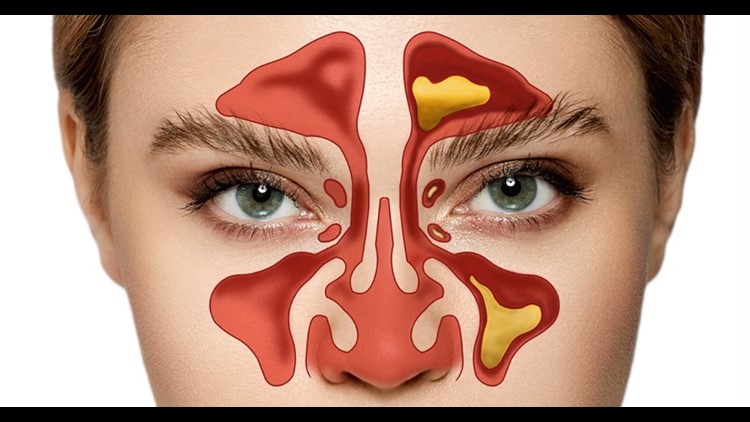If you experience frequent sinus congestion, pressure, pain or infection, you know just how uncomfortable and tiring it can be. W. Michael Greene, MD, a sinus surgery specialist with Lexington ENT & Allergy, answers our questions about the procedure.
What are the most common reasons that people need sinus surgery?
Sinuses are the hollow cavities in the skull that drain into the nose. People most commonly need functional endoscopic sinus surgery because of recurrent sinusitis or infection that does not respond to medical therapy. Another reason to undergo surgery is having chronic sinus stuffiness and drainage that never goes away. Lastly, some people need surgery for polys that obstruct the sinuses.
Sinus surgery only involves the sinus cavities and is different than other septolasty (surgery to straighten a deviated septum) or rhinoplasty (surgery to change the external structures or appearance of the nose).
How does someone know when their sinus condition requires surgery?
A CT scan will show if something is wrong anatomically, but imaging alone cannot determine whether to have surgery. Patients and their physicians decide to move forward with surgery based on three factors:
- Are the problems severe enough?
- Is nonsurgical treatment effective?
- Does the CT scan show an anatomical issue that needs to be corrected?
It is essential to exhaust nonsurgical treatments like nasal saline rinses, nasal steroid sprays, allergy control, and adequate antibiotic treatment before considering surgery.
Suppose someone has three or more sinus infections per year, causing them to miss work and are often miserable because of their symptoms. In that case, their condition is probably “bad enough” to consider surgery.
What are the benefits of sinus surgery?
We initially considered sinus surgery purely a drainage procedure to correct blocked sinuses that would not drain and needed to be opened or washed out. We now know it also improves the delivery of medications like nasal steroid sprays or washes into the sinuses. Without sinus surgery, those medications and washes get into the nose well and provide some help, but they cannot get into the sinuses well because the openings are too small, and the flow is out, not into those cavities.
It is important to know that surgery only changes the anatomy of the sinuses, so you can still get infections or have allergies after surgery.
What can someone expect during and after surgery?
Sinus surgery is usually painful and requires time away from work. I recommend patients take ten days off from work to recover, though that varies from person to person.
Decades ago, surgeons “scraped” the sinuses, which left scar tissue. Surgeons no longer use that technique because you need healthy, functional sinus membranes. Now, surgery widens the natural openings to the sinuses, improving their function so that when the sinuses are congested, they can still drain. This reduces the chance of a sinus infection developing on top of the allergy or cold.
The surgery reduces the frequency and severity of sinus infections but does not eliminate problems completely. Sinus surgery is largely ineffective for improving headaches and for people who smoke. Some people have chronic or recurrent sinus problems without an anatomical issue that needs surgery. A CT scan will identify those who do not have an anatomical issue requiring surgery.
What else do you want readers to know about sinus surgery?
Sinus surgery will not prevent you from getting colds. Most respiratory infections are viral and have to run their course. There’s no drug or surgery for these problems. No one likes to hear, “It’s just a virus,” but we must be honest with patients about whether medications or surgery will be effective.


